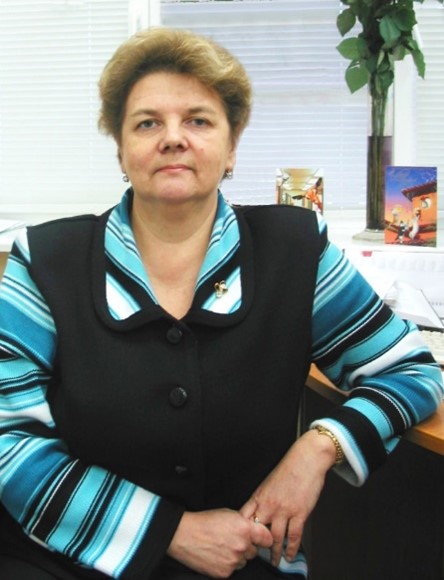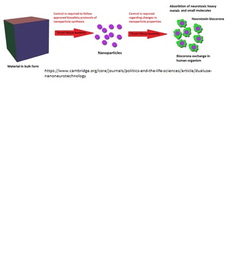

On April 11, 2024, Maryna Skok, an outstanding Ukrainian scientist, biochemist and an expert in the field of neuroimmunology, died in Kyiv at the age of 68.
Maryna Skok started her scientific career in the Palladin Institute of Biochemistry of the National Academy of Sciences (Kyiv) under the umbrella of the Ukrainian Biochemical Society. She obtained her PhD in 1983 in the Molecular Immunology Department, on “Immunochemical analysis of cytochrome c” (supervisor Prof. S. Komisarenko). Using an enzyme immunoassay, she found that exacerbation of coronary insufficiency or expansion of the infarction zone in patients with myocardial infarction is accompanied by an increase in the concentration of cytochrome c in the blood serum.
After the thesis defence, the Head of the Molecular Immunology Department, Prof. S. Komisarenko, created a special group to study nicotinic acetylcholine receptors (nAChRs) in non-excitable cells, where Marina was a group leader. This group later grew into the Laboratory of Immunology of Cellular Receptors, which is a part of the Molecular Immunology Department. Maryna also pursued her research work abroad: from 1989 to 1990, she worked in the Institute for Genetics (lab of Prof. Klaus Rajewski), University of Cologne, Germany (Alexander von Humboldt Fellowship), and from 2000 to 2005 she worked in the Pasteur Institute (Receptors and Cognition Unit, Head – Prof. J.-P. Changeux), Paris, France (supported with two EMBO Short-Term Fellowships and the French-Ukrainian Program “Dnipro”). In 2006, Maryna defended her DSc. thesis ”Structure and functions of nicotinic acetylcholine receptors of B lymphocytes” (scientific consultant Prof. S. Komisarenko). She became a professor in 2014, and was elected as an Academician of the National Academy of Sciences of Ukraine in 2018.
The main research interest of Prof. Maryna Skok was cholinergic regulation of immune processes such as inflammation and antibody immune response, including structure, functions and signalling pathways of nAChRs expressed in immune cells and in mitochondria, and neuroinflammation in relation to cognitive disorders like Alzheimer disease and therapeutic approaches to its treatment including mesenchymal stem cells. In particular, she determined the role of different subtypes of nAChRs in the activation of B lymphocytes and the development of the humoral immune response. Subsequently, together with her colleagues, she determined for the first time the presence of functionally active nAChRs in intracellular organelles (mitochondria and nucleus) and showed their role in the regulation of the mitochondrial pathway of apoptosis and translocation of the hypoxia factor HIF-1α.
In particular, the main scientific achievements of Prof. Maryna Skok were:
- Elucidation of structure and functions of nAChRs in B lymphocytes. B lymphocytes were found to express α4β2, α7 and α9 nAChR subtypes, regulating their development and activation through interference with BCR- and CD40-related signalling pathways.
- Discovery of functional nAChRs in mitochondria. α3β2, α4β2, α9 and α7β2 nAChRs were found to be exposed on the mitochondria outer membrane to regulate permeability pore formation and cytochrome c release by affecting mitochondrial kinases.
- Elucidating the role of α7 nAChRs-specific antibodies in neuroinflammation within the brain and memory impairments in relation to Alzheimer's disease. Insight into the role of brain α7 nACR in the development of neuroinflammation and cognitive symptoms of Alzheimer's disease and post-COVID syndrome opens up new possibilities for the treatment of these diseases.
Key publications of Maryna Skok:
- Gergalova G. et al. (2012) Mitochondria express 7 nicotinic acetylcholine receptors to regulate Ca2+ accumulation and cytochrome c release: study on isolated mitochondria. PLoS One 7:e31361. https://doi.org/10.1371/journal.pone.0031361
- Skok, M. and Lykhmus, O. (2016) The role of α7 nicotinic acetylcholine receptors and α7-specific antibodies in neuroinflammation related to Alzheimer disease. Curr. Pharm. Des. 22, 2035-2049. https://doi.org/10.2174/1381612822666160127112914
- Lykhmus, O. et al. (2019) Intravenously injected mesenchymal stem cells penetrate the brain and treat inflammation-induced brain damage and memory impairment in mice. Front. Pharmacol. 10:355. https://doi.org/10.3389/fphar.2019.00355
- Lykhmus, O. et al. (2020) Positive allosteric modulation of alpha7 nicotinic acetylcholine receptors transiently improves memory but aggravates inflammation in LPS-treated mice. Front. Ageing Neurosci. 11:359. https://doi.org/10.3389/fnagi.2019.00359
- Tarasenko, O. et al. (2020) Unusual properties of α7 nicotinic acetylcholine receptor ion channels in B lymphocyte-derived SP-2/0 cells. Int. Immunpharmacol. 82, 106373. https://doi.org/10.1016/j.intimp.2020.106373
In addition to her research activity, which was awarded a Mechnikov’s prize by the Ukrainian Academy of Sciences in 2012, she taught Basic Immunology in the National University “Kyiv-Mogyla Academy” 1995–2003 and Cellular Immunology in Kyiv Taras Shevchenko National University 2010–2014, and published the first Ukrainian manual on Basic Immunology in 2002.
Maryna was a member (2008–2011) and co-opted member (2012–2014) of the FEBS Fellowships Committee. Prof. Miguel A. De la Rosa, Secretary General expressed condolences from FEBS:
“On behalf of all of us at FEBS, we were very sorry learn of the sad news that Maryna Skok had passed away and we would like to offer our sincere condolences to colleagues in the Ukrainian Biochemical Society and at the Palladin Institute. Maryna was a former member of the FEBS Fellowships Committee and her contribution to that committee was greatly valued. She is mentioned in the section in the FEBS at 50 book (see p. 147). We greatly appreciate Maryna’s nominations to FEBS committees and, most recently, her contribution to the FEBS Congress in Milano this summer as a member of the Scientific Program Committee. She is listed on the Congress website, here: https://2024.febscongress.org/committees, where her sad passing is now acknowledged and this news has been shared with the Italian Society, SIB, who shares our condolences to you.”


Join the FEBS Network today
Joining the FEBS Network’s molecular life sciences community enables you to access special content on the site, present your profile, 'follow' contributors, 'comment' on and 'like' content, post your own content, and set up a tailored email digest for updates.
Very sad to hear about Maryna passing away. I very much appreciated her as a colleague in the FEBS Fellowships Committee.